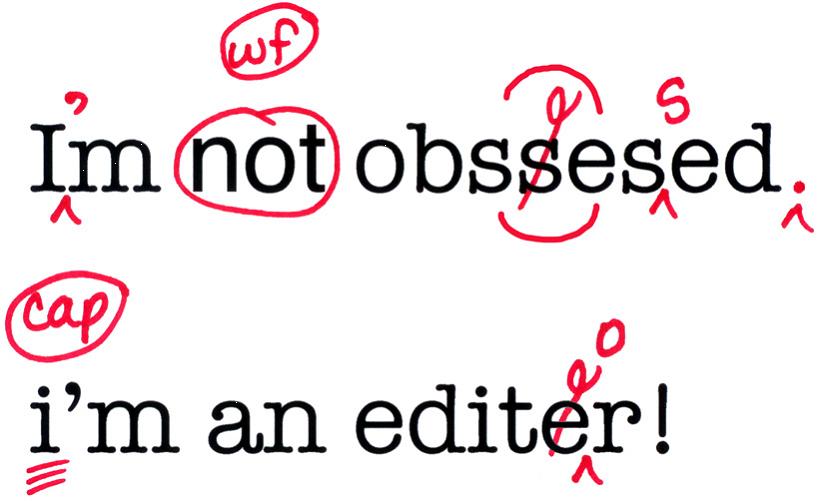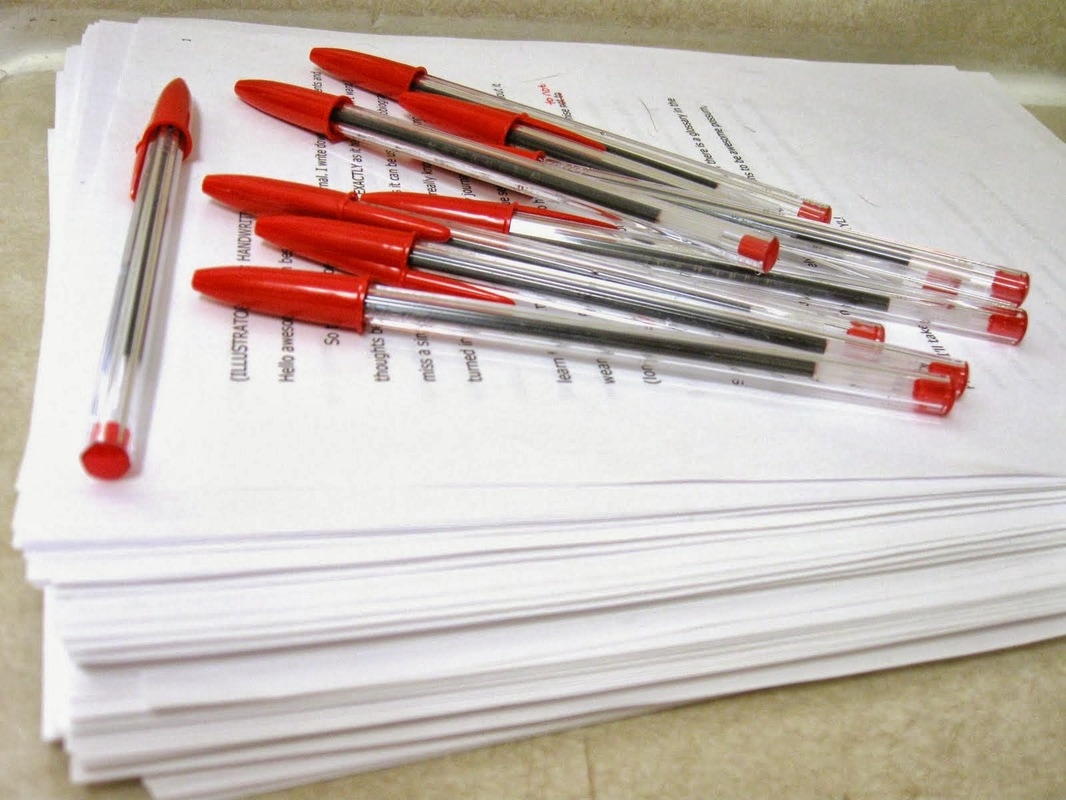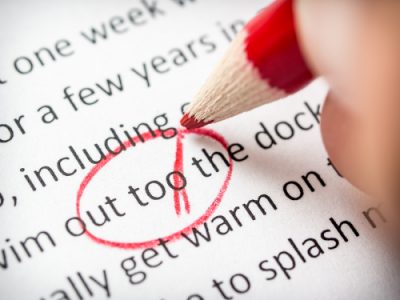Frequently Asked Questions - FAQ's1. What's the difference between proofreading & copyediting?
I offer two levels of service:
Proofreading used to be the last thing to happen to a manuscript before the presses started rolling, but nowadays it can happen at any time. You give me your text, and I will make sure the words are spelled correctly, that the verbs agree with their subjects, and that your commas and periods are properly used. Simple, sweet--and indispensable! Ask me for my copyediting service, and you'll still get the proofreading, but I'll do so much more. I'll catch the second usage of a particular adjective in a single paragraph--and suggest an alternative. I'll point out that your argument would be stronger if you rearranged paragraphs three and four. If you specify the Associated Press Stylebook, I'll lose that "Oxford" comma and remind you to use numerals instead of words for numbers 10 and larger. What I will not do is rewrite your work. My goal as a copyeditor is to make your writing as effective as possible, not to make it sound like me. That is why I encourage the "Track Changes" approach, which allows me to explain my reasons for a suggested change in a marginal note, while you retain the right to decline my suggestions, one by one. After all, you are the author! 2. How do I submit my work to you?
Here's the best scenario
3. How will I receive an estimate?
4. what are the standard stylebook & format choices?
Dictionaries of choice: Merriam-Webster's Collegiate Dictionary, 11th Edition; Webster's New World College Dictionary, 5th Edition; and the New Oxford American Dictionary, 3rd Edition 5. what is "track changes" mode?
Check out the demonstration of "Track Changes" on the EXAMPLES page of this website.
With "Track Changes," you can switch between views of your work to see:
You accept or reject each suggested revision in sequence. 6. what if i don't agree to some or all of the changes?
With "Track Changes," it's up to you: Accept or reject each suggested revision in sequence. Accept all, or accept some. It's your decision.
7. How do I pay for the services?
My fee is $25.00 per hour. If my estimate totals $50.00 or more (2 hours), I will expect a 50% down payment before I begin your project, with the balance due when I complete it. I will send you an invoice so that you may pay online, using your major credit card or your PayPal account.
8. What about turnaround time?
The turnaround time depends on the size of the job and my current workload. If there is a deadline on your end, please let me know.
9. What other information do you need?
Describe for me -
10. Do you have any writing tips?
I have 3 favorite tips which are described on my home page:
1. Lose the murk. Make the writing clear. 2. Cut the flab. Lean writing communicates. 3. Keep the voice. Make your mark; you have have something to say in your own words. 11. How do i get my writing published?
How to Get a Book Published
Getting published requires talent, persistence, and luck. If your dream is to get a book published, you’ll need to how the industry works and what the publishing process looks like.
12. What is the difference between active & passive voice?
ACTIVE VOICE: She slammed on the brakes.
PASSIVE VOICE: The brakes were slammed on by her. Active voice is used for most non-scientific writing. Using active voice for the majority of your sentences makes your meaning clear and keeps the sentences from becoming too complicated or wordy. Even in scientific writing, too much use of passive voice can cloud the meaning of your sentences. Click here for more explanation. 13. what word processing program should I use?
Any word processing program can be used for writing. Microsoft Word has an excellent "Track Changes" feature that enables me, the editor, to suggest corrections and make comments to you, the author. You then can accept or reject each change as you please.
Google Docs (it's free!) has similar features.
|












